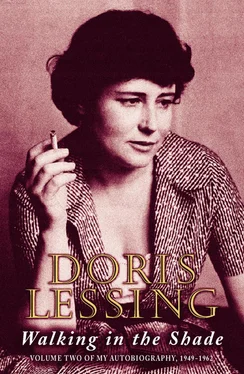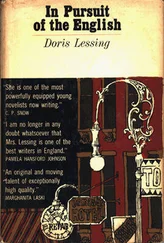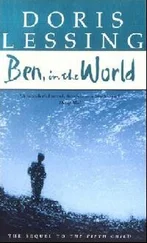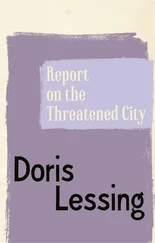Discussing it later with the knowledgeable, I was told that this was typical communist tactics. I was from the very start put in a position where I was involved in a dishonest act and could be exposed for it. I believed that, but not for long, because I began to see something much deeper. Why was it that anywhere near the Party, facts became twisted, people said things which you knew – and they must have known – were untrue? The devil is described as the Father of Lies, a resonant phrase, suggesting other, older phrases, like ‘Realm of Lies’. I have come to think that there is something in the nature of communism that breeds lies, makes people lie and twist facts, imposes deception. What is this thing? This force? One cannot believe one word that emanates from a communist source. Communism is indeed a realm of lies. Stalin, the great deceiver, was only partly responsible, because it was Lenin, the exemplar, who provided the blueprints. ‘Disinformation’ was – is? – only a crystallization, a formalization, of communism’s deepest nature. But these are deeper waters than I know how to plumb: I am sure, though, that there is something here that lives well beyond the daylight world of common sense and simple causes.
We were an improbable assortment of people. First, Naomi Mitchison. She was one of the writers who had broken new ground for women in the thirties, particularly with the novel The Corn King and the Spring Queen. She was a town councillor in Scotland, a farmer, and, with her husband, Dick Mitchison, who was a member of Parliament, an energetic member of the Labour Party. A. E. Coppard wrote some of the best of English short stories, gentle, wry, humorous – and sharp-eyed, like himself. But unfortunately, falling in love with communism had not done much for his clarity of vision. Richard Mason claimed he was going to the Soviet Union because the year before he had gone to Lourdes and thought this would be a nice contrast, and as piquant an experience. But he was deceptive, played the role of philistine, a pipe-smoking tweedy Englishman, phlegmatic and silent. In fact, he was a romantic soul. Arnold Kettle was on this delegation because Naomi had invited him and because the Party had agreed to it. I had written a well-reviewed novel and short stories.
When we met at the airport, five of us looked with suspicion, or with wariness, at Arnold Kettle, but almost at once his calm and good sense made him the mentor of the group. This often happened: communists, seen as demons, seemed disproportionately sane when actually met.
Our opinions about the Soviet Union could hardly have been more diverse, but we were made one partly because of the hysterical attentions of the newspapers, which caused us to close ranks, and partly because of Arnold’s insistence that we should present a united front, regardless of our differences. This had to be the party line, from King Street and – presumably – the Soviet Union. It surprised the ‘right wing’ – Naomi and Douglas – and upset A. E. Coppard, because he wanted only to embrace communism publicly and for ever on behalf of the whole British nation. The point was, he was quite unpolitical, had not been, as it were, inoculated against politics, and his first introduction to it had overthrown him. Richard Mason was unpolitical by nature and intention. So Arnold and I found ourselves holding the centre ground, which certainly suited my temperament and, of course, my sense of importance. I think now that if we had quarrelled publicly, in front of the Russians, we would at least have presented a fairer picture of British attitudes towards communism, but with every hour together we found ourselves feeling more and more British, and patriots. This united front was matched as soon as we met the Russians, for they were all old-fashioned nationalists. This sounds a simple statement, to be met now by: Well, of course! But nationalism of this sort had nothing to do with the purities of Utopian Communism, which planned the mutual love of all mankind. To listen to our hosts talking like Colonel Blimp made me remember, most uncomfortably, the hours we had spent in the group in Southern Rhodesia, trying to make sense of the twists and turns in the ‘Party Line’. Masterpieces of dialectic, they were, and particularly from Gottfried, manipulating Marxist verities. If the Russians had known how local communists, all over the world, wove their airy structures of explanation of why the Russian comrades were doing this and that improbable thing, they would have laughed their heads off. How right I had been to say – and Gottfried too – that no real Communist party anywhere would recognize our idealistic vapourings. But to encounter this crude, simplistic nationalism here was not what I had expected, and yet why not? The Russians, or rather Stalin, had never made any secret of it. These mental discomforts I discussed with Arnold, for the others would not have understood us. We concluded that the war had been so terrible for the Russians that of course they had to retreat to nationalism. Russians had to be forgiven everything because of that war. They had lost more people in the siege of Leningrad than the British and Americans combined had lost in the whole war. This was why Czech Jack kept saying to me, ‘You people here simply don’t understand.’ [‘The Soviet Union’ and ‘Russia’ were interchangeable in those days, improbable though that sounds now.]
I have to say that these memories of that trip are not shared – for instance, with Naomi, as I discovered when twenty-five years or so later I found we were not remembering the same things: it was not a question of remembering the same things differently but as if we had been on two different trips. This experience, which was shocking to me, began my attempts to understand the extraordinary slipperiness of memory: before that, I had taken it for granted that people with the same experiences would remember the same things. Particularly when they were as vivid as those during our trip to Russia. I did better with Arnold; our memories did match, more or less.
I have seldom been so torn, astonished, disappointed, alert … alive, as during that trip, and my memories of it are among the most vivid I have. There is a basic question about memory: why do we remember this and not that, particularly when this is not necessarily important, is on the contrary mere trivia. We remember what we do, I think, because for one reason or another we were particularly alert, paying attention, present in the occasion – because most often we are not present but thinking about what we had for breakfast, or what we will do tomorrow, or recalling what we said to So-and-so. Why we are more alive and awake at some times than others is a separate question, leading to very deep waters. Well, I was certainly present, every minute, during that trip, and that is the reason for my memories of it. I had often decided to write about it but then decided not. What was the point? Anything said or written about the Soviet Union was bound to be greeted by emotions so violent, so enraged, or so partisan that no calm judgement could be expected. Besides, what I remembered was not necessarily flattering to my fellow delegates. Of course, this was bound to be true of what they thought about me.
But now all there is left is the music of the distant drum …
Our official host was the Union of Soviet Writers, headed by one Alexei Surkov, whose name was soon to become synonymous with the oppression of decent writers by Soviet ideology. He was an ordinary-looking man, in the style Soviet officials used then to convince: bluff, open, take-me-or-leave-me, honest-John Surkov, the friend of friends of the Soviet Union. Behind him was the KGB, monitoring and directing every word and action. Did we know this? Yes, but our view of the KGB was naive, to say the least. Also coloured by arrogance. We joked, in our hotel rooms, that the KGB would be tapping our telephones and the concierges examining our belongings, but it was of no concern to us; we were from the West and did not go in for that sort of thing. We did not see ourselves as useful tools for the KGB. Correctly, as it turned out, though they would have been pleased if we had become their tools – after all, so many did. From their point of view we were the first delegation of ‘intellectuals’ from the West since the war, the ‘Great Patriotic War’ – a phrase which caused us discomfort and highlighted our differences from them – and were to be humoured and pampered. Behind them were the horrors of the Great Famine, deliberately engineered by Stalin, the Purges, the Gulag, the crushing devastations of the war, the killing of the Jews during the Black Years – not over yet – unspeakable injustices, torments, murders, tortures. While writing this, I read that the mass graves recently discovered and acknowledged were because Stalin, continually imprisoning hundreds of thousands of his people, was told the prisons were overcrowded, did not feel inclined to waste money on building more, and solved the problem by having the prisoners shot and then beginning again. Behind the Russians we were meeting was this history. And Stalin was still alive, watching like a spider from his Kremlin. We did not know then, but Stalin read everything published in the Soviet Union – novels, short stories, poems, and all play and film scripts. He had caused songs to be written, with prescribed words, suitable for different stages of the war and even for battles. He certainly believed that the artist is the engineer of the human soul – as he was always being quoted as saying. The opening of the Soviet Archives has fleshed out the character of dear Uncle Joe.
Читать дальше












